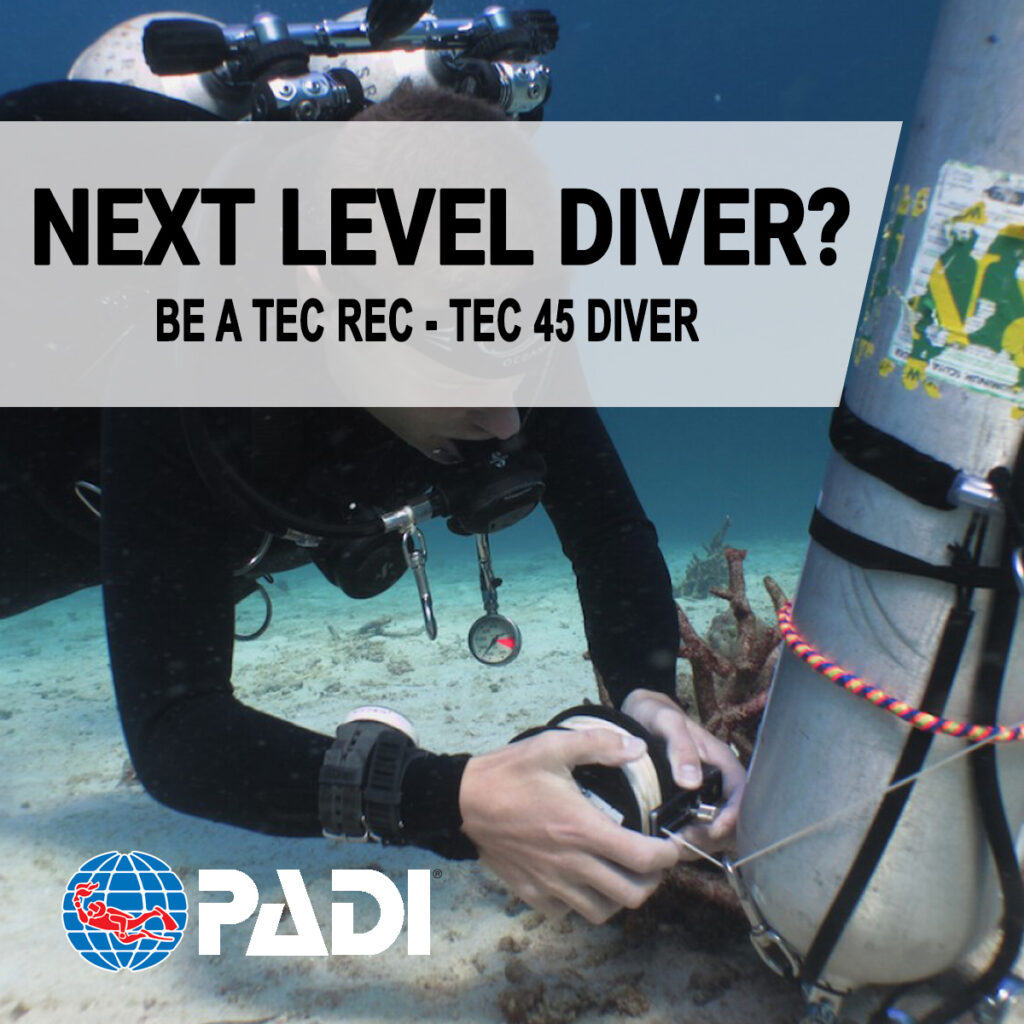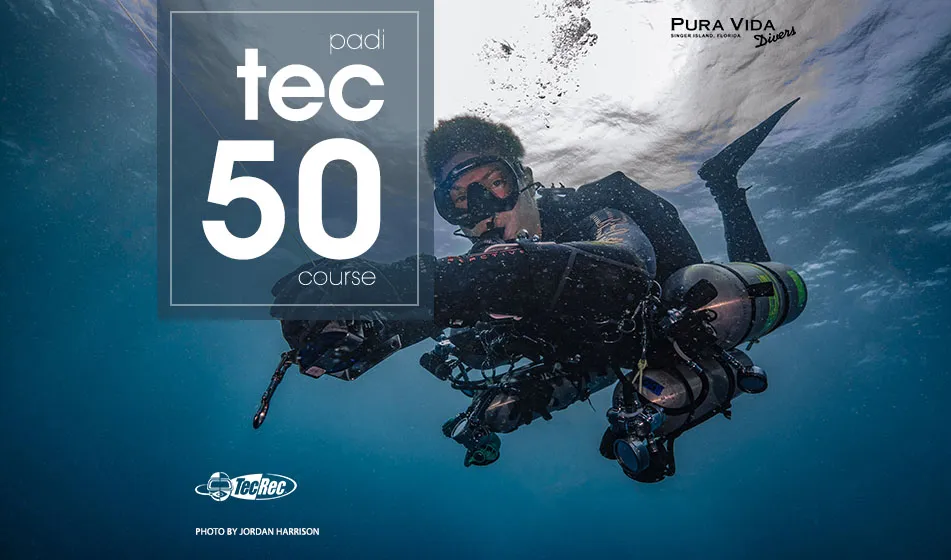Technical Diving
- Home
- Technical Diving
Explore
Technical Diving
Introduction to Technical diving
Technical diving is a term used to describe all diving that exceeds the recreational diving limits on depth and time in the water. Technical diving involves the use of special gas mixtures (different concentrations of oxygen rather than normal air) for breathing.
The type of gas mixture used is determined either by the maximum depth planned for the dive or by the length of time that the diver intends to spend underwater. While the maximum depth for conventional no-decompression dives is 30 to 40 meters (PADI Deep specialty is to 40m), technical divers may work up to 50m with a Tec 50 certification and deeper still with PADI Trimix qualifications to around 100m.
Technical diving almost always requires one or more mandatory decompression “stops” upon ascent, during which the diver may change breathing gas mixes at least once. Decompression stops are necessary to allow gases that have accumulated in the diver’s tissues (primarily nitrogen) to be released in a slow and controlled manner.
Discover Tec Course
Have you always wondered what it’s like to breathe underwater? If you want to try scuba diving, but aren’t quite ready to take the plunge into a certification course, Discover Scuba Diving is for you. It is a quick and easy introduction to what it takes to explore the underwater world, and will include one dive.
You learn the basic safety guidelines and skills needed to dive under the direct supervision of a PADI Professional.
Get ready to:
*Go over the scuba equipment you use to dive and how easy it is to move around underwater with your gear.
* Find out what it’s like to breathe underwater.
* Learn key skills that you’ll use during every scuba dive.
* Have fun swimming around and exploring.
If you would like undertake ‘Discover Scuba Diving’ you must be at least 10 years old. No prior experience with scuba diving is necessary, but you need to be in reasonable physical health.
Tec 40 Course
The PADI Tec 40 course is where you transition from recreational scuba diving to technical diving. It’s a great place to start because it’s the first subdivision of the full PADI Tec Diver course and bridges the gap between no stop diving and full technical deep decompression diving. You gain experience and begin building tec diving knowledge and skills. You will qualify to make limited decompression dives to 40m.
To enroll in the Tec 40 course, you must be
-A PADI Advanced Open Water Dive
-A PADI Enriched Air Diver with at least 10 dives using enriched air deeper than 18 metres/60 feet
-A PADI Deep Diver with at least 10 dives to 30 metres/100 feet
-At least 18 years old and have a minimum of 30 logged dives
-Have a Medical Statement signed by a physician within the last 12 months.
Tec 45 Course
The PADI Tec 45 course is the second part of the full PADI Tec Deep Diver program. You’ll extend your depth limit to 45 metres/145 feet and learn to plan and execute repetitive decompression dives using a single stage/decompression cylinder. You’ll also make accelerated decompression dives using EANx or pure oxygen. This is a course where you’ll rise to the challenge and make the commitment to become a technical diver.
To enroll in the Tec 45 course, you must:
* Be a PADI Tec 40 diver or equivalent from another organisation
* Be a PADI Rescue Diver
* Have a minimum of 50 logged dives, with at least 12 dives on enriched air nitrox deeper than 18 metres/60 feet and 10 dives deeper than 30 metres/100 feet
* Be at least 18 years old * Have a Medical Statement signed by a physician within the last 12 months

Tec 50 Course
The third part of the full PADI Tec Deep Diver programme is Tec 50. As a Tec 50 diver, you show that you’ve developed competency as a tec diver and have the skills to dive to a maximum of 50m. You will make extended range dives using two decompression gases. It’s not easy to reach this level and earning your Tec 50 certification opens the door to deeper diving expeditions.
To enroll in the Tec 50 course, you must:
* Be a PADI Tec 45 diver or equivalent from another organisation
* Have a minimum of 100 logged dives, with at least 20 dives on enriched air nitrox deeper than 18 metres/60 feet and 15 dives deeper than 30 metres/100 feet
* Be at least 18 years old * Have a Medical Statement signed by a physician within the last 12 months

Company
Contact Us
+94 70 120 3744
+94 76 620 2091
